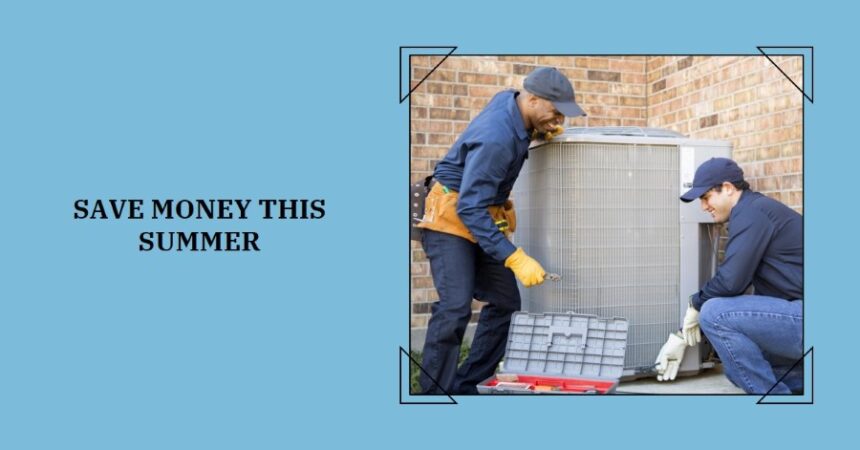Heating, ventilation, and air conditioning (HVAC) systems are an indispensable part of modern homes and buildings, offering comfort while improving indoor air quality. But their costs associated with installation, maintenance, and repairs can add up quickly; in this article, we aim to give a comprehensive overview of average HVAC costs so that homeowners and property managers can make more informed decisions about their HVAC systems.
Initial Installation Costs
Installation costs for new HVAC systems typically range from $5,000 to $12,500, covering several key aspects:
- Permits and Inspections: In many areas, local regulations mandate certain permits and inspections to ensure HVAC installations comply with safety and efficiency standards.
- Specialized Equipment: HVAC installations often involve using specific tools and equipment that add significantly to costs.
- Labor: Skilled technicians are essential for proper installation, and their expertise comes at a cost.
- Materials and Features: The quality and efficiency of HVAC components as well as any upgrades can significantly impact total costs.
Though an initial investment may appear high, according to the U.S. Department of Energy a properly installed HVAC system should last 15-20 years with regular maintenance – helping offset some of its initial costs over time.
Repair Costs
Even well-kept HVAC systems occasionally need repair. On average, HVAC repairs cost about $350; however, this figure may fluctuate widely depending on the specific issue and components involved. Common scenarios of repair for HVAC include:
- Replace Evaporator and Condenser Coils: Replacing these key components typically costs between $400 and $1,500.
- Compressor Replacement: Replacing an air conditioning compressor could potentially reach two grand in repair costs.
- Minor Repairs: For smaller issues such as thermostat replacements or minor electrical problems, like thermostat batteries or small socket repairs, costs may be less than expected.
Estimating repair costs requires taking both materials and labor costs into account. HVAC technicians need to diagnose problems, remove and replace faulty components and install new parts – each contributing to the final bill.
Replacement Costs
Sometimes repairing an older or severely damaged HVAC system simply isn’t cost-effective and replacement becomes necessary. Replacement costs for both components and entire systems can range significantly; replacement may incur significant one-off or ongoing fees as part of its implementation plan.
- Ductless Mini-Split Systems can start at roughly $2,000 for basic installation.
- Central AC Unit replacement costs typically range between $3,900 to $7,900 with installation included.
- Furnaces and Heat Pumps: Costs can range anywhere from $1,700 to over $10k, depending on type and fuel source.
Replacement costs depend on factors like system size, energy efficiency rating and any required modifications to existing ductwork or home infrastructure.
We interviewed several HVAC companies and the prices listed here are generally accurate depending on which firm is chosen. Justin from Optimized Air out of Round Lake, IL reported that replacing an air conditioning unit typically costs the customer $4500 depending on their home.
Factors Affecting HVAC Costs
Cost factors that impact HVAC installation, repair and replacement services include:
- Home Size and Climate Conditions can affect costs for HVAC solutions; large homes tend to need more powerful units which increases costs; extreme climates may necessitate more robust or customized HVAC solutions, and increasing energy efficiency costs more upfront but often results in long-term energy bill savings.
- Accessibility: Labor costs associated with difficult installation locations can increase significantly, while brand and quality costs often tend to be higher for premium HVAC brands and components.
- Local Market Costs can differ dramatically based on where your installation takes place.
Long-Term Considerations
Although HVAC system costs can be substantial upfront, it’s essential to be mindful of their long-term implications:
- Energy Savings: More efficient systems can dramatically lower monthly energy bills.
- Comfort: When properly functioning, HVAC systems enhance indoor comfort and air quality.
- Home Value: Installing updated, efficient HVAC systems increases property values.
- Maintenance Costs: Regular HVAC system maintenance can save on repair expenses and extend its lifespan, saving both money and stress in the form of unexpected costs.
- Warranty Protection: Many HVAC systems come equipped with warranties to offer peace of mind as well as potential savings on future repairs.
Understanding the costs associated with HVAC systems is essential for homeowners and property managers. Although initial investments and repair or replacement costs may be substantial, a properly functioning HVAC system provides essential comfort while potentially offering long-term energy savings through energy efficiency. By considering factors like home size, climate and energy efficiency ratings consumers can make informed decisions regarding their investments. Average costs provide useful guidelines; it’s best to obtain multiple quotes from reputable HVAC specialists for more accurate estimates tailored to your particular situation.
